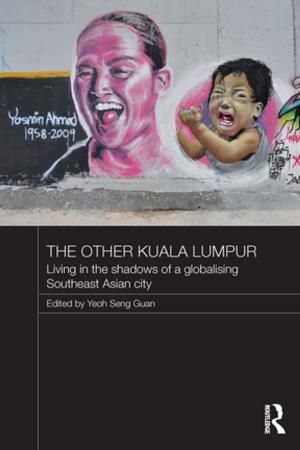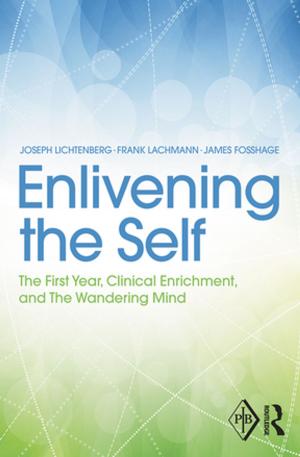Genomics In Asia
Nonfiction, Social & Cultural Studies, Social Science, Cultural Studies, Ethnic Studies, Anthropology| Author: | Margaret Sleeboom-Faulkner | ISBN: | 9781136202100 |
| Publisher: | Taylor and Francis | Publication: | November 12, 2012 |
| Imprint: | Routledge | Language: | English |
| Author: | Margaret Sleeboom-Faulkner |
| ISBN: | 9781136202100 |
| Publisher: | Taylor and Francis |
| Publication: | November 12, 2012 |
| Imprint: | Routledge |
| Language: | English |
"Genomics in Asia" focuses on issues dealing with the development and application of molecular biology and bioengineering technologies in Asian societies and cultures. The workshop on which this book is based aimed to gain an insight into bioethical issues with relation to the dynamics of Asian societies, cultures and religions. It was to generate debate on Asian Genomics and create a basis for comparative research into the relationship between the development and application of modern genetics, cultural values, and local interests in Asian societies. The papers first of all reflect a great variety of bioethical views discussed from the angle of different disciplinary and cultural backgrounds, creating a basis on which a further comparison between different local knowledge systems in relation to genomic practices will be feasible. This book provides insights on research into the social, political and ethical aspects of genomics, and reflects the bioethical experiences of researchers from Japan, China, the Philippines, Thailand, Taiwan, Pakistan, India and Malaysia. The subjects of discussion vary from genetics in China to religious perspectives on cloning and genetic therapy. Themes include the commercial and medical application of new bioengineering technologies, such as the impact of preventive genetic medicine, genetic counselling, genetically modified organisms [GMOs] and stem-cell research on wealth distribution, cultural traditions, social well-being, and political and legal regulations and institutions. In the study of bioengineering in Asia, various perspectives were brought together at a concrete research level. The authors tried to avoid macro-concepts incorporated by dichotomies of East and West and to acquire new insights into the relationship between local knowledge systems and cultures and interests groups on the one hand and the constellation of various interests of scientific research, governments and MNCs on the other.
"Genomics in Asia" focuses on issues dealing with the development and application of molecular biology and bioengineering technologies in Asian societies and cultures. The workshop on which this book is based aimed to gain an insight into bioethical issues with relation to the dynamics of Asian societies, cultures and religions. It was to generate debate on Asian Genomics and create a basis for comparative research into the relationship between the development and application of modern genetics, cultural values, and local interests in Asian societies. The papers first of all reflect a great variety of bioethical views discussed from the angle of different disciplinary and cultural backgrounds, creating a basis on which a further comparison between different local knowledge systems in relation to genomic practices will be feasible. This book provides insights on research into the social, political and ethical aspects of genomics, and reflects the bioethical experiences of researchers from Japan, China, the Philippines, Thailand, Taiwan, Pakistan, India and Malaysia. The subjects of discussion vary from genetics in China to religious perspectives on cloning and genetic therapy. Themes include the commercial and medical application of new bioengineering technologies, such as the impact of preventive genetic medicine, genetic counselling, genetically modified organisms [GMOs] and stem-cell research on wealth distribution, cultural traditions, social well-being, and political and legal regulations and institutions. In the study of bioengineering in Asia, various perspectives were brought together at a concrete research level. The authors tried to avoid macro-concepts incorporated by dichotomies of East and West and to acquire new insights into the relationship between local knowledge systems and cultures and interests groups on the one hand and the constellation of various interests of scientific research, governments and MNCs on the other.















